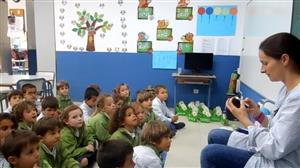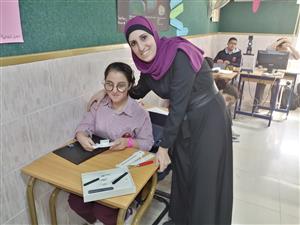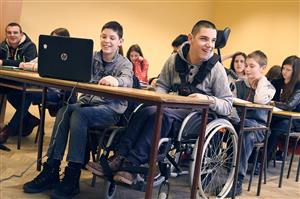Spain
Tres Olivos School
Classrooms at Tres Olivos School are built with sound-absorbing materials and equipped with…
Primary, Secondary, and University Education taught in a formal setting, characterized by a curriculum and an end certification recognized and issued by an authorized entity. We encourage nominations that include teaching methods, education specific assistive technology, and holistic accessible education environments.
Primary School Education – Formal education for young people. Though there are varying standards, primary education is typically designed for children 6 to 11 years of age.
Secondary School Education – Formal education for young people. Though the duration in each country vary, secondary education typically covers ages 12 to 17 and is divided into two levels: lower secondary education (usually 3 to 4 years) and upper secondary education (usually 2 to 3 years). In effect, secondary school education follows primary school education and includes preparation for employment or higher education.
University Education – Undergraduate, graduate, and post-graduate learning. Nominations will be accepted from both accredited universities, as well as university of applied sciences, and technical/vocational universities.
All three stages require a formal setting (physical or virtual classroom) and a sequential curriculum to be followed; there are different levels of advancement and an end with a degree/diploma etc. recognized and issued by an authorized entity.
Nominations in this subtopic shouldn't contain:
Instead, please visit the other subtopics: Inclusive Education Subtopics

Spain
Classrooms at Tres Olivos School are built with sound-absorbing materials and equipped with…

Jordan
The Arab Episcopal School in Irbid is an inclusive school with kindergarten for children with and…

Montenegro
In 2013, UNICEF launched a project across Montenegro to produce DAISY-Textbooks and make them…